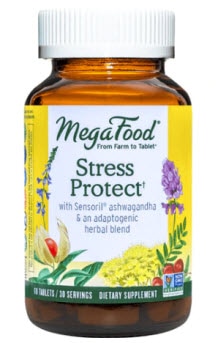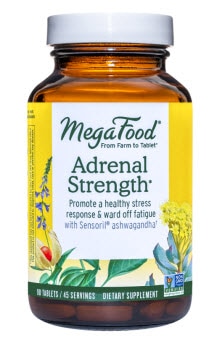Stress. Ugh. Nobody likes stress. We generally think about it only in a negative way, but the reality is that our stress response is intended to (and does!) protect us from danger. As an example, think about a moment in the past when your quick, almost automatic response kicked in just in the nick of time, right when you needed it most. Perhaps you narrowly avoided an accident on the highway, or acted quickly to scoop up your pet right before he ran into the street. The fact is that throughout our lives, our elegant built-in stress reaction leads us to take action that protects us from harm.
Understanding your body’s stress response
First of all, perception is reality. What I mean by this is that if we perceive a threat, our bodies will always respond as if we are truly in danger. So one thing to notice is: How often are we “activating” our stress response? Do we really need to have a full-blown activation of our alarm system about an upcoming test, work deadline or the fact that we’re running late to meet a friend?
I’ve found that in my own life I tend to activate my stress alarm cascade more frequently than necessary. Sound familiar? A big challenge in modern life is that we turn on our stress response over and over again, often at times when we don’t urgently need it to protect us.
To put it in perspective, here’s what happens when we trigger our stress response:
A cascade of hormones, such as cortisol and adrenaline, are released from our adrenal glands. Fun fact: this is why people often talk about stress and adrenal health together, since our adrenals play such an important role in this reaction. Our bodies are literally primed in a “fight or flight” mode.
As mentioned earlier, this activation can and does protect us when it’s needed, since all resources are concentrated on staying very alert and focused in the moment. We start to breathe more quickly and rapidly, our muscles tense and our heart rate and blood pressure increase.
In a healthy system, we can return from this stressful state back to homeostasis fairly quickly. We “shake it off” and come back to a calmer state. That’s the ideal scenario. However, in modern times, it’s usually not that simple. As we perceive one stressor after another coming our way, many of us get into a chronic state of hypervigilance. We basically have the “on” switch continually turned on, and our bodies don’t get a break. This long-term activation of the stress response has real consequences for our health and wellness.
How to support a healthier stress response
Fortunately, there’s a lot we can do to make positive shifts, starting with lifestyle changes. Healthy habits such as daily meditation, taking a yoga class and going for walks can go a long way to reducing stress. Additionally, it’s vital to make sleep a priority. We all know that when we don’t sleep well, everything gets worse, including our response to the stressors of life.
In terms of nutrition, emphasize nourishing whole foods with a wide variety of fruits and vegetables across the color spectrum. It’s also very important to include healthy fats and protein to stabilize your blood glucose (aka sugar) levels. Think about eating in a way to prevent yourself from getting “hangry.” Keeping your blood sugar levels stable prevents unnecessary stress activation.
And finally, we can reach for the power of plants. To support a healthy stress response, I immediately turn to a category of plants called adaptogens. Adaptogens promote a healthy stress response & help ward off fatigue. And of all of the adaptogens, ashwagandha may be the most well-known. Ashwagandha (Withania somnifera) is an ancient ally that has been utilized and revered in India for thousands of years. In the traditional Indian system of medicine, Ayurveda, this humble looking plant is considered a rasayana, a restorative tonic that increases health and longevity.†
Stress response supplement support
Sensoril®, a clinically-researched extract, has been shown to maintain healthy cortisol levels to help support the body’s response to stress.† The goal of balancing cortisol (remember cortisol?) is an important part of a comprehensive adrenal support plan. Although ashwagandha may be the most well-known, there are several other widely respected adaptogens such as holy basil and rhodiola root. And each one of these herbs have their own profile. For example, rhodiola root supports exercise endurance and stamina.†
Bringing key herbal adaptogens together in one supplement, MegaFood Stress Protect contains Sensoril® Ashwagandha paired with an adaptogenic herbal blend (rhodiola root, schisandra berries, astragalus root, holy basil leaf) to support a reduction in feelings of stress.† It also includes our proprietary Food Blend (organic amla fruit, organic kelp fronds) for a natural source of phytonutrients and additional nourishment. The serving size is just two tablets per day, and it can be taken any time of day, even on an empty stomach.
If you’re looking for additional nutrient support, along with adaptogens, MegaFood Adrenal Strength may be a good supplement for you. It’s specifically formulated to nourish adrenal glands depleted by everyday physical, mental and emotional stress.† Similar to Stress Protect, Adrenal Strength features Sensoril®, a clinically-studied ashwagandha extract shown to promote feelings of well-being and balance.† Additionally, it contains vitamin C, which is found in high concentration in the adrenal glands. It also includes vitamin B5, magnesium and organic oranges. As always, check in with your healthcare practitioner about supplement recommendations.
Hopefully, this information helps you to view stress in a whole new light – as an ally that can protect you when you need it most, but also as a powerful force that you don’t need to continually activate. The opportunity now is to respond to stress in a different, and ultimately healthier, way with the support of lifestyle changes, nutrition and supplements to support your unique needs.
†These statements have not been evaluated by the Food and Drug Administration. This product is not intended to diagnose, treat, cure or prevent any disease.



